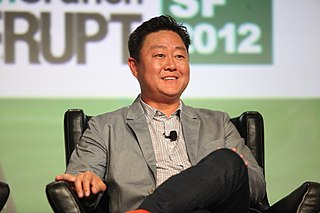A Quote by Zhang Xin
Our tenants now are companies like Uber, the taxi service, Meituan.com, China's version of Groupon - and a large number of startups. These companies operate in a modern way, just like their customers: They go on the Internet, look for an offer and take it.
Related Quotes
It's a lot easier to gain traction when there is such a great proliferation of Internet access. The velocity at which some of these startups are gaining traction is mind-boggling. Companies like ShoeDazzle, Stella & Dot, Gilt, Groupon - these companies are going from zero to hundreds of millions in revenue in three years.
Companies that acquire startups for their intellectual property, teams, or product lines are acquiring startups that are searching for a business model. If they acquire later stage companies who already have users/customers and/or a predictable revenue stream, they are acquiring companies that are executing.
When we first started our internet company, 'China Pages', in 1995, and we were just making home pages for a lot of Chinese companies. We went to the big owners, the big companies, and they didn't want to do it. We go to state-owned companies, and they didn't want to do it. Only the small and medium companies really want to do it.
If you talk privately to our tech companies, our pharmaceutical companies, our high-end manufacturing companies, the high end of America, where the good-paying jobs are, China is not letting them in unless China gets to steal their intellectual property in a company that`s 51 percent owned by the Chinese.

































